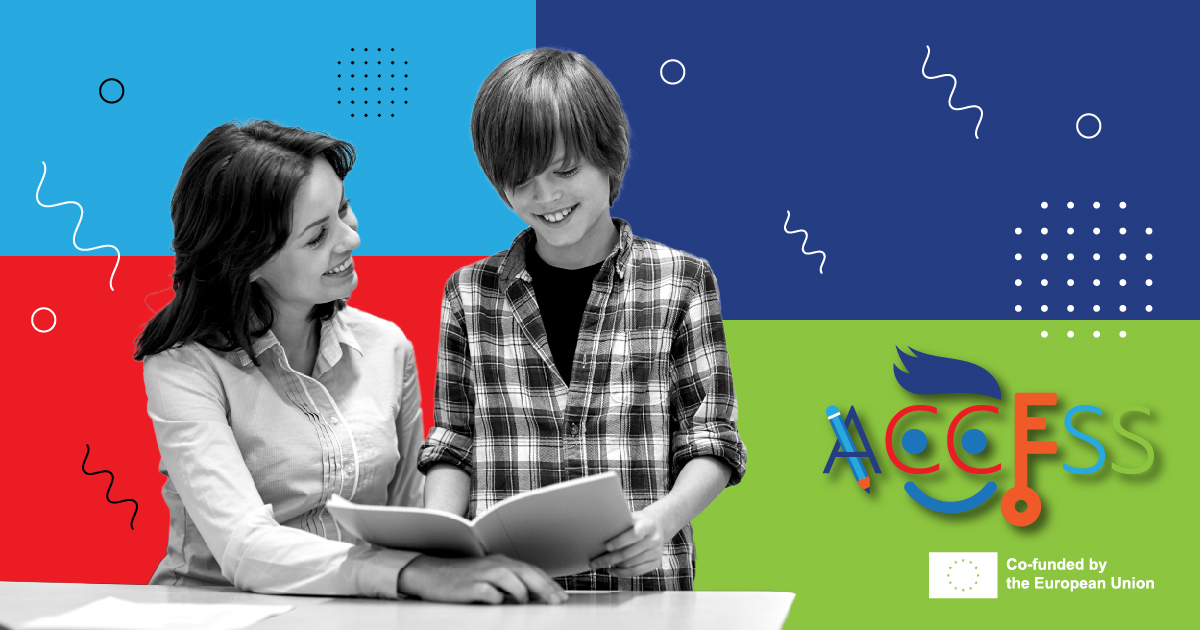The ACCESS project – Addressing Learning Difficulties in General Education – is an Erasmus+ initiative that brings innovation and practical solutions to everyday teaching practice, with a focus on inclusion. The project addresses one of the most overlooked but essential challenges in education: effectively supporting children aged 6-10 with learning disabilities (LDs).
Rather than isolating students with learning difficulties, ACCESS aims to transform the learning environment itself. Through targeted training, easily accessible resources and school-family collaboration, the project enhances early identification and management of LDs in mainstream classrooms.
Objectives of the project
ACCESS is driven by specific objectives:
- To empower primary teachers to identify, understand and manage LDs in the classroom.
- To equip parents with the necessary tools and knowledge to actively support their children’s learning.
- Strengthen early detection and intervention through inclusion strategies.
- Strengthen school-family cooperation, creating a single framework of support.
- To raise awareness in the educational community and society about learning difficulties and the need for inclusion.
Project deliverables
To achieve the objectives, ACCESS is developing three main deliverables:
- Asynchronous Training Program for Teachers – Digital self-paced learning program that provides practical knowledge and strategies for early identification and management of LDs in the general classroom.
- Digital Library for Teachers – A collection of tools, activities, lesson plans and support materials tailored to the needs of children with LDs.
- Toolkit for Parents – Guidance material with tips, activities and information on supporting children at home and working with teachers.
Each deliverable is designed with functionality, accessibility and long-term use in mind.
Who benefits
The project is addressed to:
- Primary school teachers
- Pupils with learning difficulties
- Parents and families of children 6-10 years old
- Special education teachers and support staff
- Education policy makers and policy makers
Why it is important
ACCESS promotes a proactive and collaborative approach: early identification of difficulties, in-class support and active parental involvement. In doing so, it challenges the idea that support should be detached from mainstream education – and highlights inclusion as a collective responsibility.
By combining innovation with empathy, ACCESS is building a future where all children have access to quality, equitable education, regardless of how they learn.
